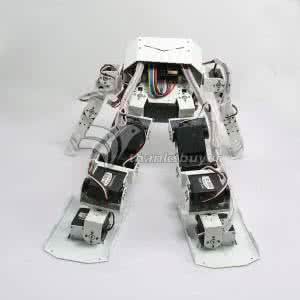Modern robotic systems are endowed with superior mobility and mechanical skills that make them suited to be employed in real-world scenarios, where interactions with heavy objects and precise manipulation capabilities are required. For instance, legged robots with high payload capacity can be used in disaster scenarios to remove dangerous material or carry injured people. It is thus essential to develop planning algorithms that can enable complex robots to perform motion and manipulation tasks accurately. In addition, online adaptation mechanisms with respect to new, unknown environments are needed. In this work, we impose that the optimal state-input trajectories generated by Model Predictive Control (MPC) satisfy the Lyapunov function criterion derived in adaptive control for robotic systems. As a result, we combine the stability guarantees provided by Control Lyapunov Functions (CLFs) and the optimality offered by MPC in a unified adaptive framework, yielding an improved performance during the robot's interaction with unknown objects. We validate the proposed approach in simulation and hardware tests on a quadrupedal robot carrying un-modeled payloads and pulling heavy boxes.
翻译:现代机器人系统具有高度机动性和机械技能,适合在现实世界情景下使用,需要与重物体和精确操作能力进行互动;例如,在灾害情景下可以使用具有高有效载荷能力的腿机器人清除危险材料或运送受伤人员;因此,必须制定规划算法,使复杂的机器人能够准确地执行运动和操作任务;此外,还需要针对新的、未知的环境建立在线适应机制;在这项工作中,我们强制要求模型预测控制(MPC)产生的最佳国家投入轨道满足机器人系统适应控制中产生的Lyapunov功能标准;结果,我们把控制Lyapunov功能(CLUFs)提供的稳定保障和MPC在统一适应框架内提供的最佳性结合起来,在机器人与未知物体互动期间产生更好的性能;我们验证关于四重机器人携带未建模的有效载荷和拉动重箱的模拟和硬件测试的拟议方法。




